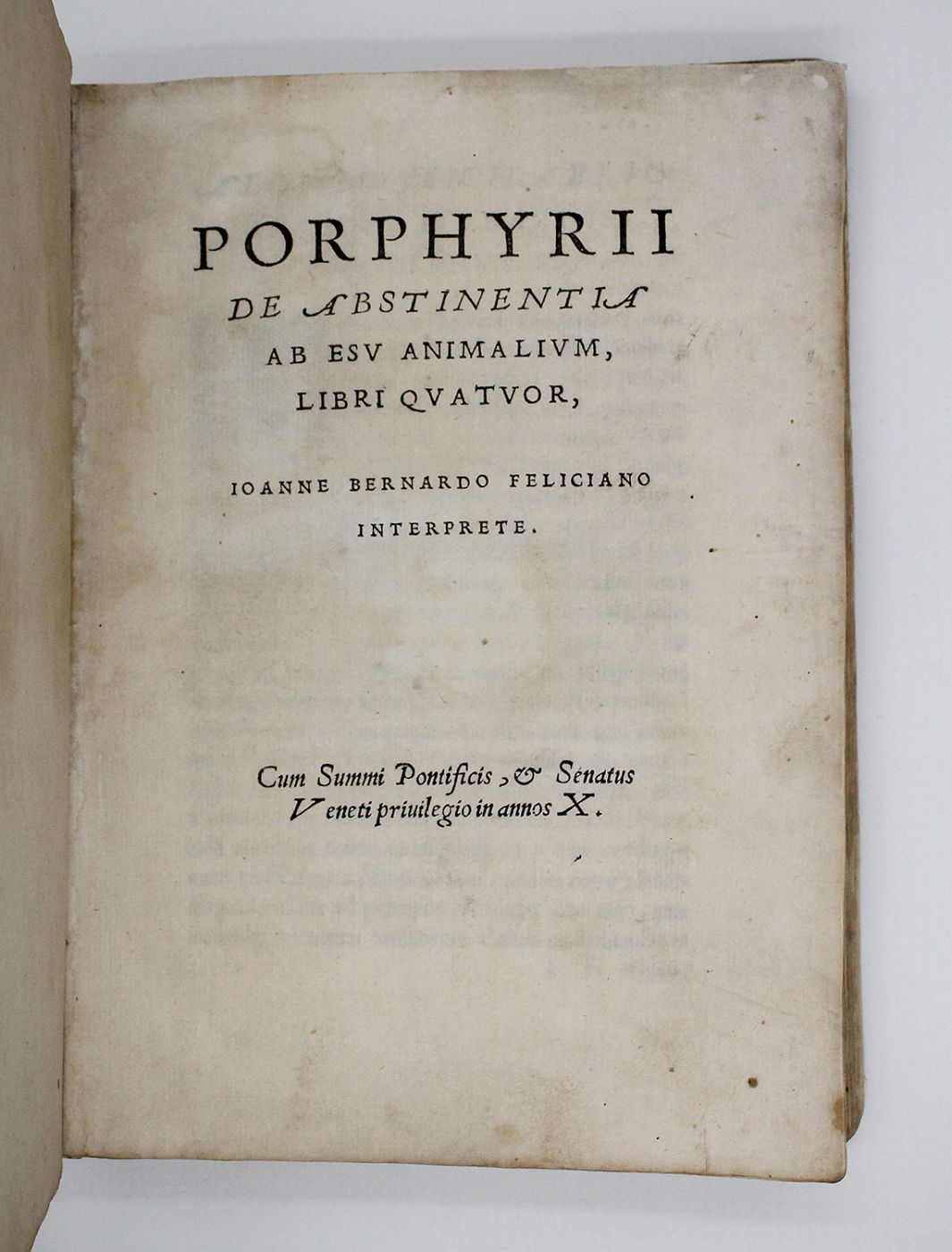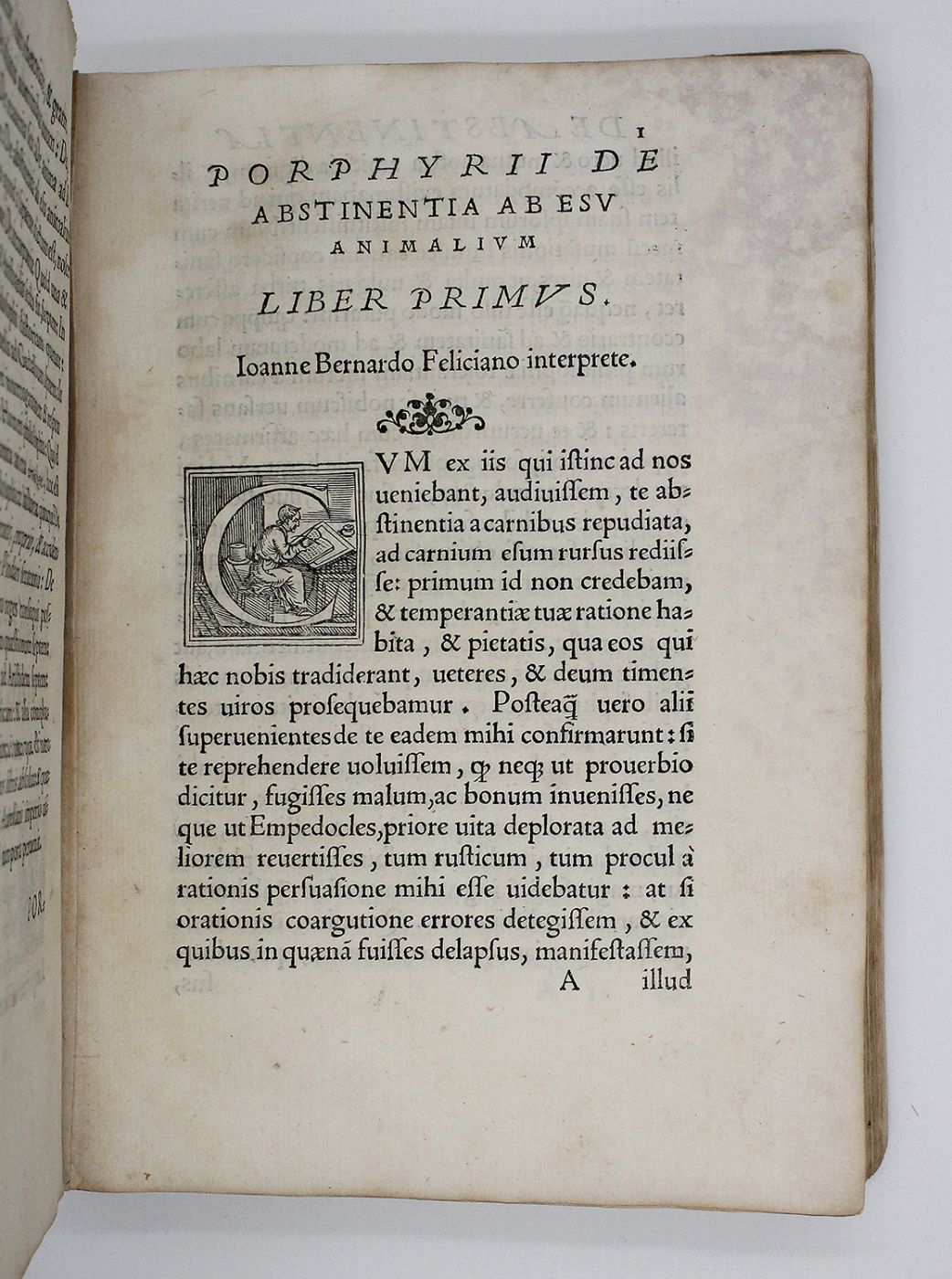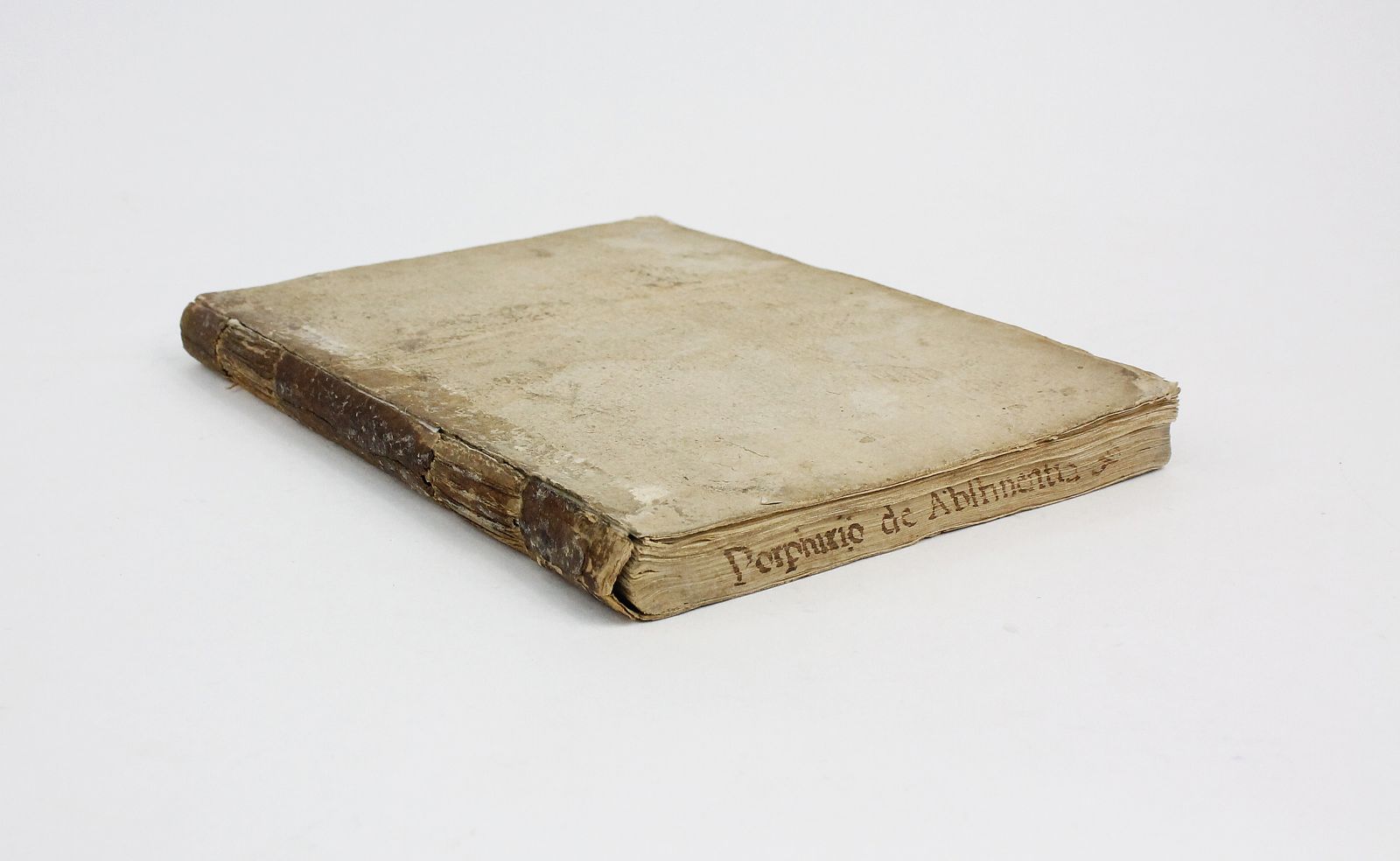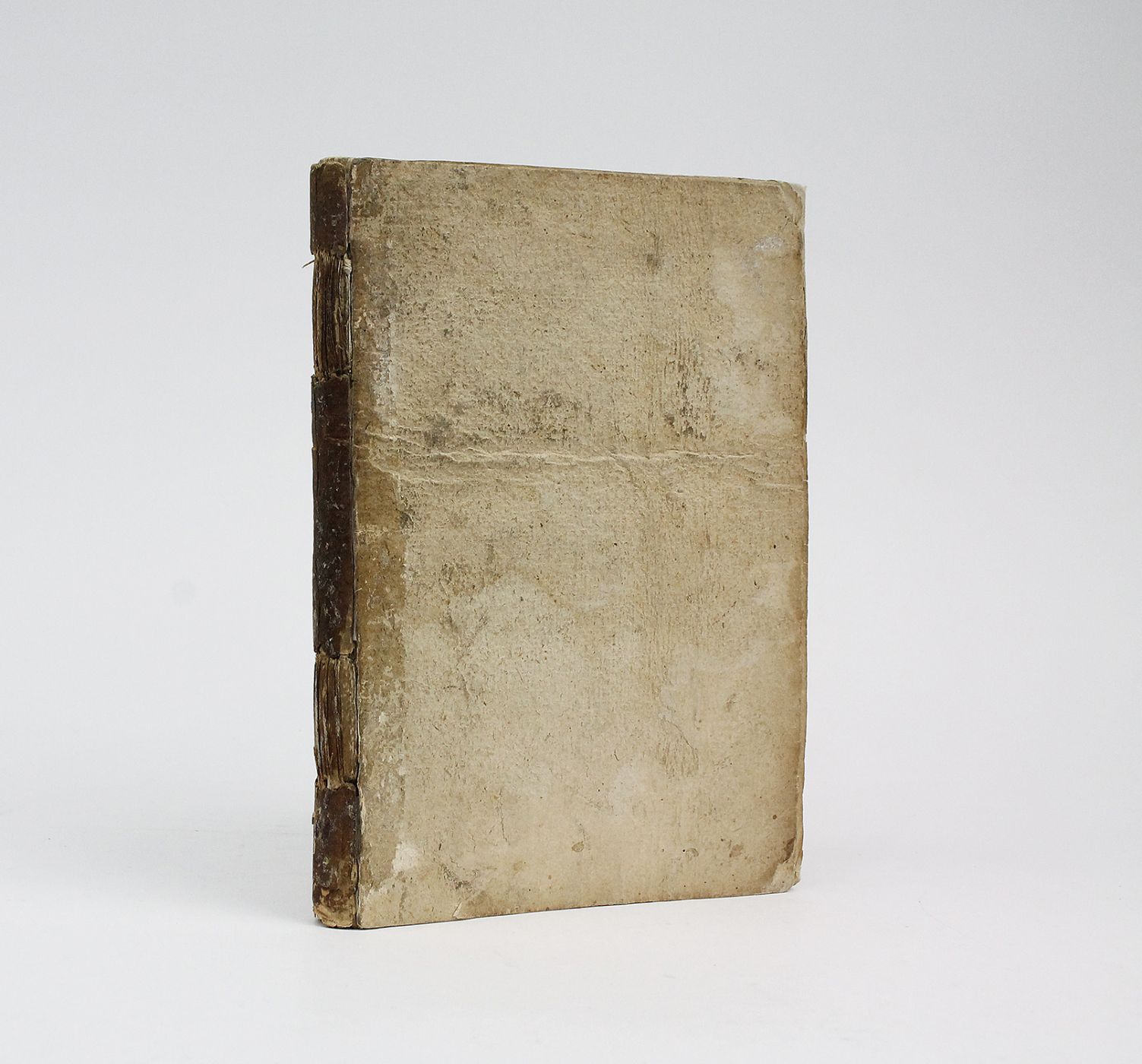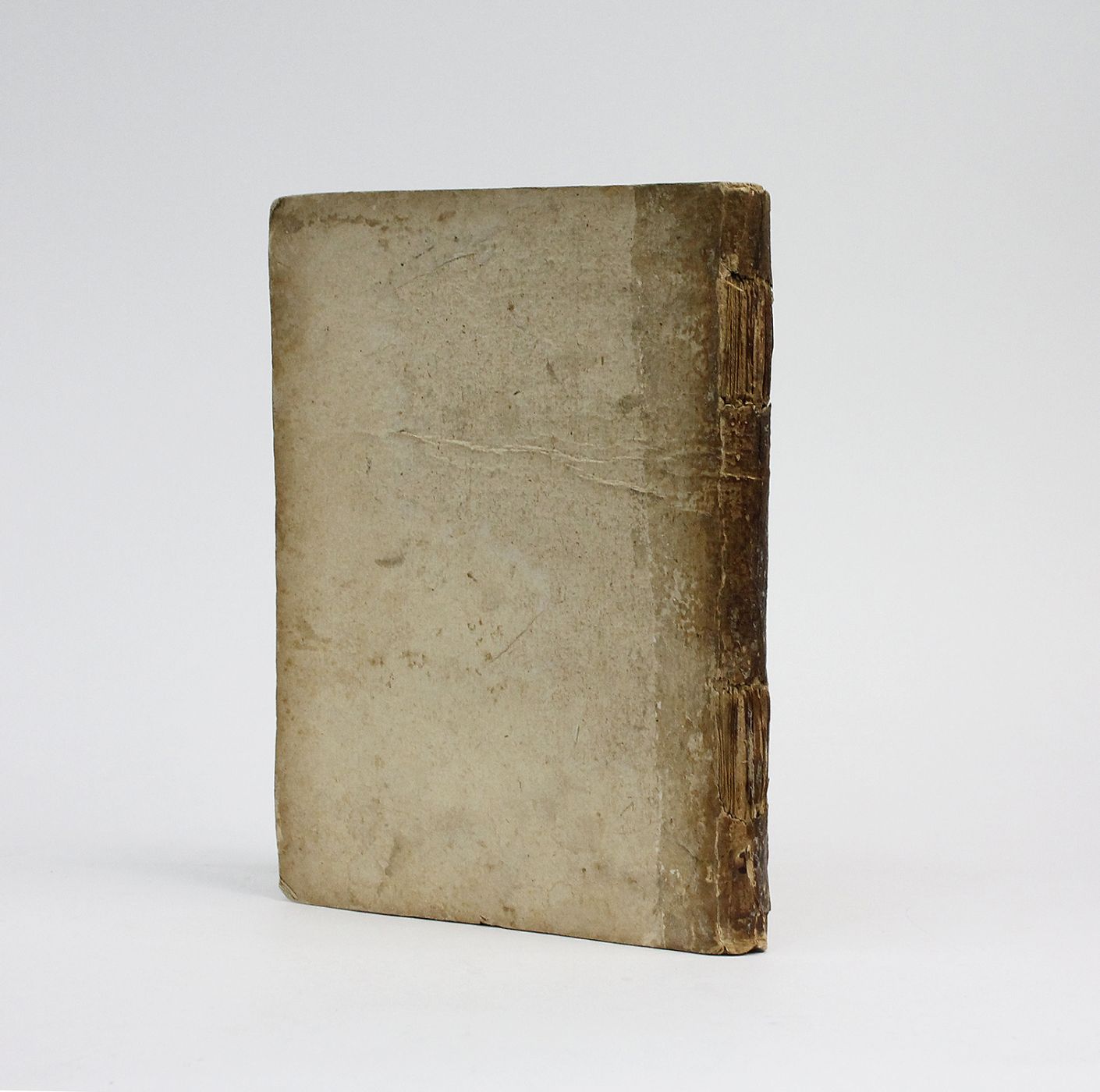PORPHYRII DE ABSTINENTIA AB ESU ANIMALIUM, Libri Quatuor, Ioanne Bernardo Feliciano Interprete.
First edition of the earliest printed edition of the most important classical work on vegetarianism, and one of the very first texts to advocate the diet's practice. Quarto. Contemporary paper-covered boards with the original sewing of the spine preserved. ff. [6], 100. Woodcut pictorial chapter initials. Title written in old ink to the bottom edge of the text block. A very good copy, the binding square and secure with a little perishing to the original spine covering. The contents with some occasional spotting to the blank outer margins are otherwise in very good order throughout. An excellent, unsophisticated copy.� Housed in a custom made navy blue cloth solander case.
Alongside Plutarch's essay 'On the Eating of Flesh' (contained within his 'Moralia' c.100 AD), Porphyry's essay 'On Abstinence from Animal Food' stands as one of the two founding works in the Western vegetarian canon, providing a comprehensive defence of the diet on an ethical basis. Indeed, as one scholar indicates, the work "is now commonly recognised as the primary classical work related to vegetarianism and animal ethics". "More than just a polemic. [Porphyry's essay] is a finely reasoned argument of the significant human moral obligation toward non-human animal species" (Preece, 'Sins of the Flesh: A History of Ethical Vegetarian Thought', p.113). Informed by the Pythagorean-Neoplatonic tradition, Porphyry's essay drew upon the earlier vegetarian ideas of Pythagoras and his followers. Written after his arrival in Rome in 263 AD, it takes the form of an open letter to the Roman philosopher Firmus Castricius, designed to encourage him to renounce the consumption of animal flesh. Composed of four books, the work argues that the killing of animals for either sacrifice or food is both unjust and unnecessary, as well as harmful to the purity and piety of a human being. As it explains, by slaughtering animals for our own selfish or gluttonous purposes "a barbarous and brutal nature becomes strengthened in us, which renders men insensible to the feeling of pity and compassion. Those who first perpetrated these iniquities fatally blunted the most important part of the (civilised) soul". Rejecting the doctrine that animals were created by God for the use of man, Porphyry's argument comes to centre on the notion that non-human animals are fellow-beings who, like humans, are possessed of reason, and who, therefore, are also deserving of moral justice. This led Porphyry to claim that humanity had an ethical duty to refrain from inflicting pain or death on other species, not only to protect our own spiritual or moral well-being, but also, importantly, for the sake of animals themselves as individuals. As Voltaire - one of many later admiring readers - observed, Porphyry "regards other animals as our brothers - because they are endowed with life as we are, because they have the same principles of life, the same feelings, ideas, memory, industry, as we" (Williams, 'The Ethics of Diet', p.68). "The most important statement in the history of vegetarianism" (Preece) prior to the writings of Percy and Mary Shelley a millennium and a half later, 'On Abstinence from Animal Food' became one of the most quoted and referenced works for virtually all subsequent vegetarian writers, exerting significant influence over the development of vegetarian ideas down the proceeding centuries. Indeed, its influence upon the Shelleys' own philosophical-dietary writings - themselves the essential touchstone for many nineteenth and twentieth-century vegetarian advocates - as well as numerous other vegetarian treatises of the period, such as those by John Oswald, Joseph Ritson and George Nicholson, served to fundamentally connect this ancient text to the birth of modern vegetarian/vegan theories and movements. This first printed edition, translated from Greek by Giovanni Bernardo Feliciano (c.1490-1552), is rare in commerce, with no copies appearing at auction in almost 70 years. A fundamental cornerstone in any library of vegetarian literature.
Stock code: 22496
£9,750
Published:
Category
LiteratureNon-fiction
Economics
Science
Cookery / Food


